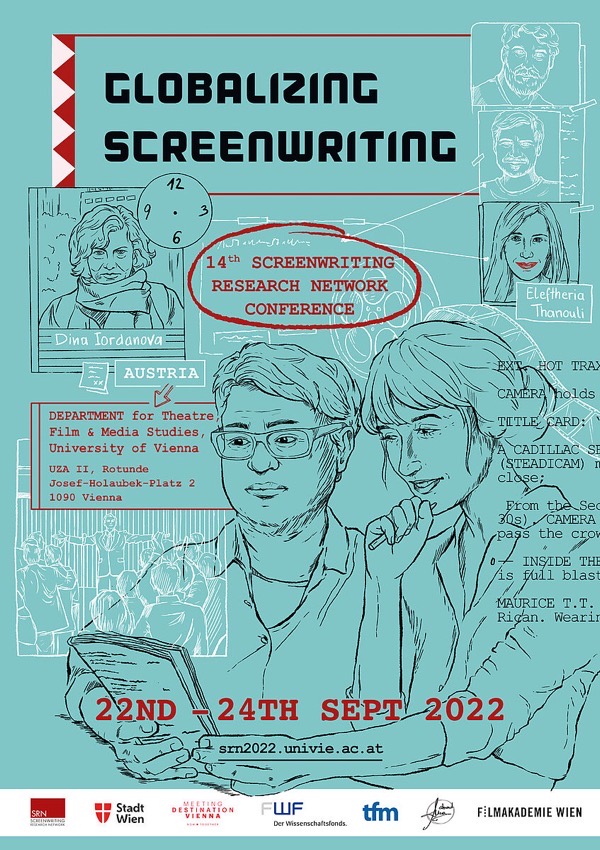Transcript:
Rosanne: So it’s, to me, something I’m still battling. Even teaching students, they’ll come to my classes and I ask them to name their top five movies and then who directed them and then who wrote them and they can always name the five directors and unless it’s a writer/director, they don’t remember who wrote the movie and I have to tease them because they’re coming to become writers and they haven’t focused on the work of other writers. We should know the body of work of screenwriters as well as we know the body of work of writers like Hemingway or Faulkner. We should be able to say – and we do that with like Nora Ephron right? We’re pretty good with that but very few. Nancy Myers, we can kind of kind of know that. Again if you study silent films you know what an Anita Loos film. You know a Francis Marion film. The more you see their work the more you recognize it. So for me, we have to start focusing. The other thing that makes me crazy – that I must change someday – is both IMDb and Wikipedia, when you get the little Google Quick version when you do a search. They give you the movie name and the director. The writer is not in the Google search. You have to go to the page to get it. I’m like oh come on. Add one more line.
Host: I’m glad we’re giving you this platform to put this slogan and maybe you can make a poster or something but no it’s an important part of the history and such a crucial part of every film.
The Stephens College MFA in TV and Screenwriting is building a relationship with the Autry Museum of the American West since both organizations are devoted to bringing out more diverse and untold stories. Last year we were able to take our cohort of graduating MFA candidates to the museum’s theatre for a showing of Michael Wilson’s Salt of the Earth and we had plans to present a film of our choice this year – but of course the pandemic changed all that. Instead, Autry Curator Josh Garrett-Davis asked me if I would sit for an interview about female screenwriters in the western genre and so “When Women Wrote Westerns” came to be a part of their “What Is a Western? Interview Series”.
I had a great time discussing so many wonderful women writers – from Jeanne MacPherson to D.C. Fontana to Edna Ferber to Emily Andras. If you love westerns I suggest you watch Josh’s other interviews covering everything from the work of Native Americans in Western movies to films in the western-horror hybrid. — ![]()
What this entire presentation
As part of a series exploring the significance of the Western genre and the ways in which the movies shape our understanding of the American West, Autry Curator Josh Garrett-Davis interviews Professor Rosanne Welch about the women screenwriters of Hollywood and their contributions to the Western genre.
Find more information at the Autry Museum of the American West
Podcast: Play in new window | Download
Subscribe: RSS
![16 The Forgotten Screenwriter from What Is a Western? Interview Series: When Women Wrote Westerns from the Autry Museum of the American West [Video]](https://rosannewelch.com/wp-content/uploads/2022/10/what-is-a-western-16.jpg)
![32 Binging TV with Torchwood from In Conversation with Dr. Rosanne Welch [Video]](https://rosannewelch.com/wp-content/uploads/2022/10/rmw-intellect-32.jpg)


![03 Jeanne Macpherson & Suso Cecchi d'Amico From Jeanne to Suso to Julie to Spike: How Jeanne Macpherson’s Manual on Screenwriting Influenced Italian Realism which Influenced Black Independent Film in the U.S. [Video]](https://rosannewelch.com/wp-content/uploads/2022/10/rmw-srn-vienna-2022-03.jpg)


![15 We Quote Dialogue, Not Camera Moves from What Is a Western? Interview Series: When Women Wrote Westerns from the Autry Museum of the American West [Video]](https://rosannewelch.com/wp-content/uploads/2022/10/rmw-western-15.jpg)
![31 Mystic Popup Bar and Binging TV from In Conversation with Dr. Rosanne Welch [Video]](https://rosannewelch.com/wp-content/uploads/2022/10/rmw-intellect-31.jpg)
![02 Who was JeanneMacpherson? From Jeanne to Suso to Julie to Spike: How Jeanne Macpherson’s Manual on Screenwriting Influenced Italian Realism which Influenced Black Independent Film in the U.S. [Video]](https://rosannewelch.com/wp-content/uploads/2022/10/rmw-srn-vienna-2022-02.jpg)
![14 More On Writer Vs. Director from What Is a Western? Interview Series: When Women Wrote Westerns from the Autry Museum of the American West [Video]](https://rosannewelch.com/wp-content/uploads/2022/10/rmw-western-14.jpg)
![30 More On International Opportunities from In Conversation with Dr. Rosanne Welch [Video]](https://rosannewelch.com/wp-content/uploads/2022/10/rmw-intellect-30.jpg)
![01 Introduction From Jeanne to Suso to Julie to Spike: How Jeanne Macpherson’s Manual on Screenwriting Influenced Italian Realism which Influenced Black Independent Film in the U.S. [Video]](https://rosannewelch.com/wp-content/uploads/2022/10/SRN-Vienna-001-1.jpg)
